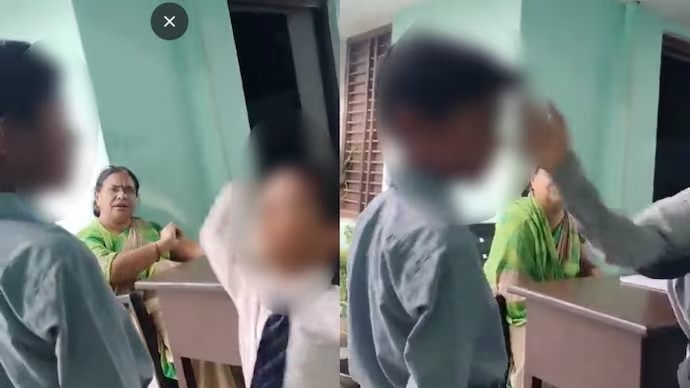
Section 295A of the Indian Penal Code (IPC)

01.11.2023
Section 295A of the Indian Penal Code (IPC) , Daily Current Affairs , RACE IAS: Best IAS Coaching in Lucknow
|
For prelims: Section 295A of IPC,Contents of Section 295-A For mains GS paper 2 : What is the matter,What has been the opinion of the Supreme Court on the controversy related to this? |
Why in the news?
Recently, the Uttar Pradesh government told the Supreme Court that the school teacher who allegedly instigated students to slap a Muslim classmate should face charges under section 295A of the Indian Penal Code (IPC).
Important points:
- On 30/10/2023, the Uttar Pradesh government told the Supreme Court that the school teacher who allegedly instigated students to slap a Muslim classmate has been booked.
- He may face charges under Indian Penal Code (IPC) section 295A (Tushar Gandhi vs State of Uttar Pradesh and others).
- Tripta Tyagi Salt teacher has been charged under section 295A of the Indian Penal Code (outraging religious sentiments) and section 75 of the Juvenile Justice Act (cruelty to a child).
- Both provisions carry a prison sentence of up to three years.
What is the matter?
- A case was registered against a teacher in Muzaffarnagar who allegedly encouraged her students to slap a classmate. The purported video of the incident created an uproar on social media.
- Teacher Tripta Tyagi was booked after a viral video showed her asking her students to slap a Class 2 boy in Khubbapur village and also making communal remarks.
- The teacher was accused of making communal remarks and ordering his students to slap a Muslim classmate for not doing homework.
- An FIR was registered against the school teacher under sections 323 (punishment for voluntarily causing hurt) and section 504 (intentional insult with intent to provoke breach of peace) of the Indian Penal Code, 1860 (IPC).
What has been the opinion of the Supreme Court on the controversy related to this?
- In 1957, a Constitution bench of the Supreme Court upheld the constitutionality of the said section in the case 'Ramji Lal Modi vs. State of UP'.
- The Court held that Section 295A of the IPC does not punish any act of insulting or attempting to insult the religious beliefs of any religion or class of citizens.
- The Court cautioned that only those acts of insult or attempts to insult can be punished under this provision.
- If they are done with a deliberate and malicious intention to outrage the religious sentiments of that class.
- The Court further clarified that this provision would apply only to serious forms of insult to religion that are designed to disrupt public order.
About Section 295A of IPC
- Section 295A of the IPC states that any deliberate and malicious act done with intent to outrage religious feelings of any class by insulting its religion or religious beliefs is a punishable offence.
- This section punishes only the gravest form of insult to religion when it is done with a deliberate and malicious intention of insulting the religious feelings of any class.
- Section 295A of the IPC is a cognizable, non-bailable and non-compoundable offence, and the police can file FIRs anywhere in the country at the instance of alleged aggrieved complainants.
Contents of Section 295-A
- The accused must insult or attempt to insult the religion or religious beliefs of any class of citizens of India.
- The said insult must have been done with a deliberate and malicious intention of hurting the religious sentiments of the said class of citizens.
- The said insult must be by words, spoken or written, by signs, by visual representation, or otherwise.